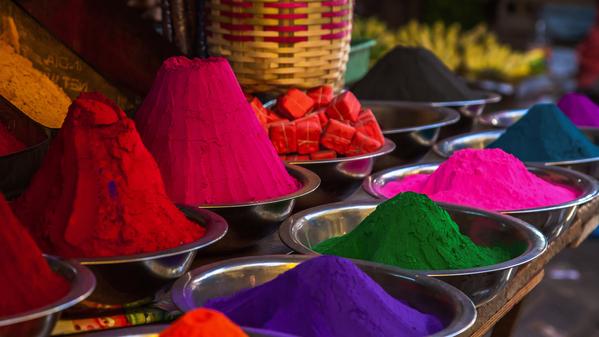
Shining light on Diwali
Diwali is a festival like no other, and many people travel during this time to experience it first-hand. Today, we review what makes this holiday so unique. Happy Diwali, everyone!
Diwali is the most important celebration in the Hindu calendar. Steeped in ancient tradition, Diwali is a festival that marks the victory of good over evil, light over darkness, and a new beginning. This holy festival usually spans five days, in which each day has its own unique traditions. So let's get to know this festival a little better, by shining some light on Diwali.
Day one: Let the festivities begin
Dhanteras is the first day of the festival, on which the goddess of wealth, Lakshmi is celebrated. Families begin to clean their homes and make small renovations in honour of the guests and gods that will visit them during the coming days. This day is also an important one for local businesses because it is tradition for people to buy precious metals, in honour of the goddess of wealth. As the sun begins to set, diyas (oil clay lamps) begin to sparkle outside of homes in honour of welcoming Lakshmi inside.
Day two: Ready. Set. Rangoli
Families spend time on the second day making gorgeous rangoli, a style of folk art in which colourful and ornate patterns are formed out of rice, dry flour, coloured sand, or flower petals, on living room floors or in courtyards of homes. These stunning creations are made by hand, in honour of welcoming their friends, family, and Lakshmi into their homes. Also known as kolam, this traditional folk art is practiced in almost every household during Diwali. While some rangoli are huge, what really makes these designs special is that no two are alike. Patterns are unique to each family and passed down from generation to generation. Rangoli are temporary and will be washed away in the coming days.
Day three: Dress your best – Diwali has arrived
Today marks the most important night of the festival, as people are saying goodbye to the old year and ringing in the new. Dressed in their best, people perform Puja (a prayer ritual), in honour of Lakshmi and the prosperity she brings to different households. But what everyone is really waiting for is the sky to turn dark, and the festival of lights to shine. It’s then that diyas illuminate the walkways of homes, streets, and stores, and fireworks dazzle in the night sky for hours on end.
Day four: Families that celebrate together…
It’s the first day of a financial new year, and with it comes a fresh start for local businesses. Families, (especially husbands and wives) get together and celebrate their love and commitment for each other. It’s also common for couples to treat today like a wedding anniversary. Men shower women with lavish gifts and wives prepare amazing feasts that promise to leave taste buds watering.
Day five: Celebrating the bond between brothers and sisters
The final day of the festivities marks something special, as brothers and sisters spend the day cherishing their special bond. Men make their way to their sisters’ homes where they’re greeted with lavish meals. Women also perform puja for their siblings in honour of asking for protection and prosperity, while brothers present their sisters with special gifts in thanks.
Diwali is a festival like no other, and many people travel during this time to experience it first-hand. But what makes it truly special, is that it brings all people together, regardless of background, to reflect on what’s important and celebrate their bond with friends and family.
Do you have plans for Diwali? Let us know in the comments below!
Getting There
G Adventures runs a number of departures all over the world, encompassing a wide range of dates and activities to cater to different tastes. We’re thrilled at the prospect of showing you this big blue planet of ours — check out our small group trips.






























